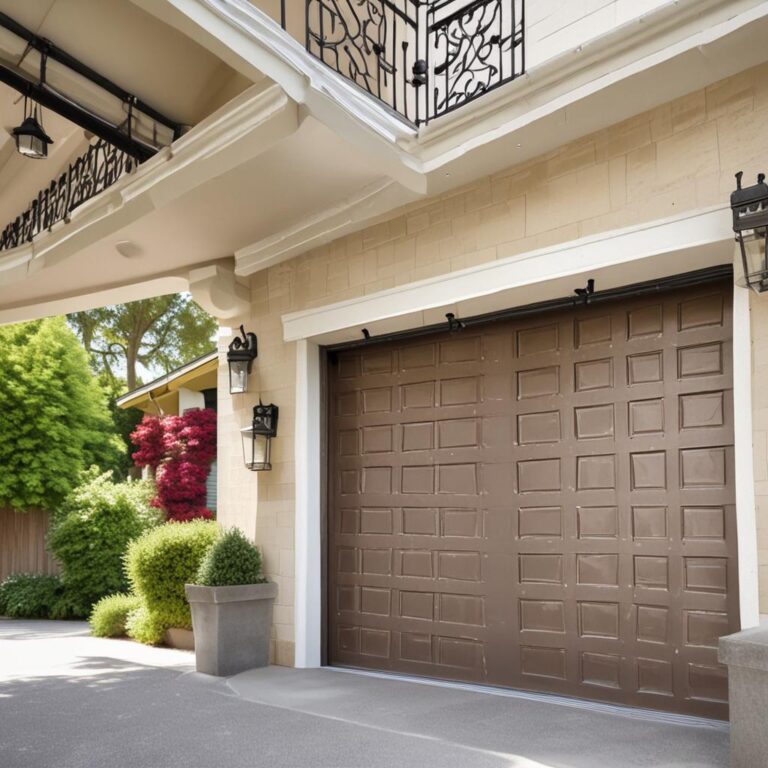How to Lubricate Garage Door
Your garage door is one of the most frequently used parts of your home, yet it’s often overlooked when it comes to maintenance. A well-lubricated garage door operates smoothly, quietly, and efficiently, while a neglected one can lead to frustrating issues like loud squeaks, jerky movements, or even complete malfunctions. Regular lubrication not only reduces wear and tear but also extends the lifespan of your garage door components, saving you from costly repairs. Whether you’re a DIY enthusiast or a homeowner looking to keep things running smoothly, this guide will walk you through everything you need to know about lubricating your garage door effectively.
Why Should You Lubricate Your Garage Door?
Reduces Noise and Friction
One of the most noticeable benefits of lubricating your garage door is the reduction in noise. Squeaks, creaks, and grinding sounds are often caused by friction between metal components. Proper lubrication minimizes this friction, ensuring your door operates quietly and smoothly. This not only makes your garage more pleasant but also reduces strain on the door’s moving parts.
Extends the Lifespan of Components
Lubrication plays a crucial role in preventing rust and corrosion, especially in areas with high humidity or extreme weather conditions. By keeping components like springs, rollers, hinges, and tracks well-lubricated, you protect them from premature wear and tear. This helps maintain the door’s functionality and avoids the need for frequent replacements.
Improves Safety and Performance
A well-lubricated garage door operates smoothly, reducing the risk of sudden stops or jerky movements that could pose safety hazards. It also lessens the strain on the garage door opener, ensuring it works efficiently and lasts longer. Regular lubrication is a small step that can make a big difference in the overall performance and safety of your garage door.
What Parts of a Garage Door Need Lubrication?
Garage Door Hinges
Hinges are the pivot points that allow your garage door to move up and down. Over time, they can become stiff or noisy without proper lubrication. Use a silicone-based lubricant or lithium grease to keep them moving smoothly. Apply a small amount directly to the hinge pins, ensuring even coverage.
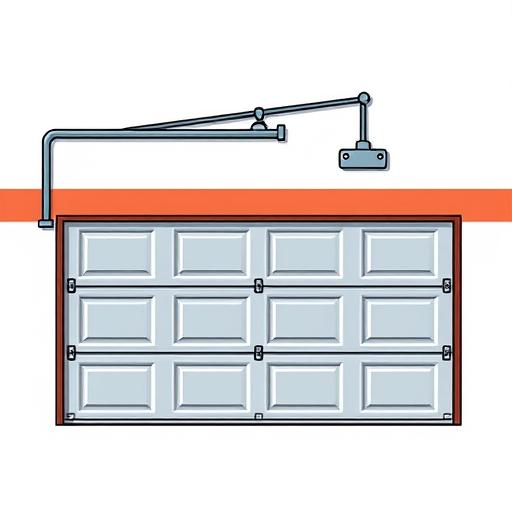
Garage Door Rollers
Rollers, whether made of nylon or steel, need regular lubrication to function properly. Avoid over-lubricating, as excess lubricant can attract dirt and debris. Apply a silicone spray or light grease to the roller bearings, ensuring they spin freely without resistance.
How Closers Internally Work | Norton Rixson Door Controls
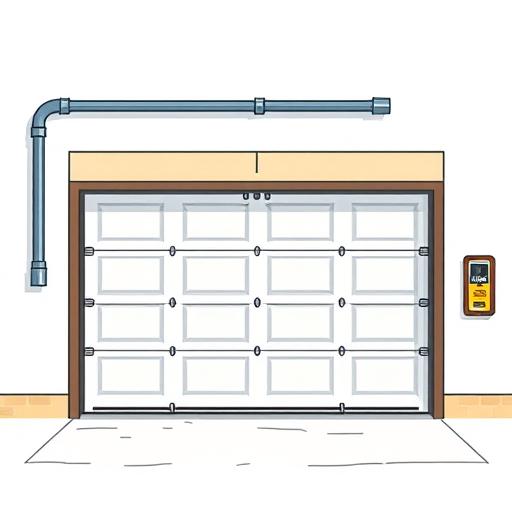
Garage Door Tracks
Tracks guide the rollers and ensure the door moves in a straight line. Before lubricating, clean the tracks to remove dirt and debris. Use a silicone-based lubricant sparingly to avoid buildup that could interfere with the door’s movement.
Garage Door Springs (Torsion & Extension Springs)
Springs are under high tension and require careful handling. Before lubricating, ensure the door is fully closed and the opener is unplugged. Use a heavy-duty lubricant like lithium grease, avoiding WD-40, which can degrade the springs over time.
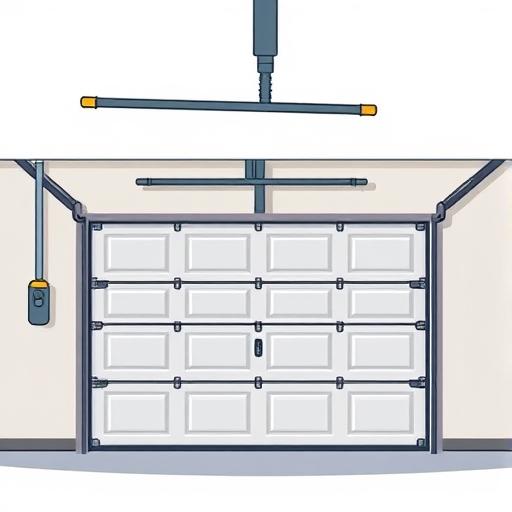
Garage Door Opener and Chain (If Applicable)
If your garage door uses a chain-driven opener, lubricate the chain to ensure smooth operation. Use a silicone-based lubricant or a product specifically designed for garage door openers. Apply it evenly to the chain, avoiding excess that could drip onto other components.
Step-by-Step Guide to Lubricating a Garage Door
Gather Necessary Tools & Supplies
Before starting, gather the necessary materials, including a silicone-based lubricant or lithium grease, a clean rag, gloves, and a ladder if needed. Avoid using WD-40, as it’s not a long-term solution for garage door lubrication.
Prepare the Garage Door for Lubrication
Unplug the garage door opener to prevent accidental activation. Inspect the door for dirt, debris, or damage before applying lubricant. Wipe down components with a clean rag to ensure the lubricant adheres properly.
Apply Lubricant to Key Components
Start by lubricating the hinges, followed by the rollers, tracks, and springs. Use a small amount of lubricant for each component, ensuring even coverage. Avoid over-lubricating, as excess can attract dirt and cause buildup.
Test the Garage Door After Lubrication
Once lubrication is complete, plug the opener back in and test the door by opening and closing it several times. Check for smooth operation and listen for any unusual noises. If issues persist, reapply lubricant or inspect for other problems.
How Often Should You Lubricate Your Garage Door?
It’s recommended to lubricate your garage door every 3-6 months or seasonally, depending on usage and climate. If you notice signs like excessive noise, stiffness, or jerky movements, it’s time to lubricate. Regular maintenance ensures your door remains in top condition year-round.
Common Mistakes to Avoid When Lubricating a Garage Door
- Using the wrong type of lubricant, such as WD-40, which is not a long-term solution.
- Over-lubricating, which can cause buildup and attract dirt.
- Skipping safety precautions, especially when working with springs under tension.
Conclusion
Lubricating your garage door is a simple yet essential maintenance task that can save you time, money, and frustration in the long run. By reducing noise, preventing wear, and improving performance, regular lubrication ensures your garage door operates smoothly and safely. Make it a part of your routine maintenance schedule, and your garage door will thank you with years of reliable service.
FAQs
What is the best lubricant for a garage door?
Silicone spray is ideal for hinges, rollers, and tracks, while lithium grease works well for springs. Avoid WD-40, as it’s not a long-term lubricant.
Sort of hidden feature in many Nissan vehicles. Useful for diagnosis. #thecarfixer #automotive
Can I use WD-40 to lubricate my garage door?
WD-40 is not recommended for garage doors because it’s a solvent, not a lubricant. It can attract dirt and degrade components over time.
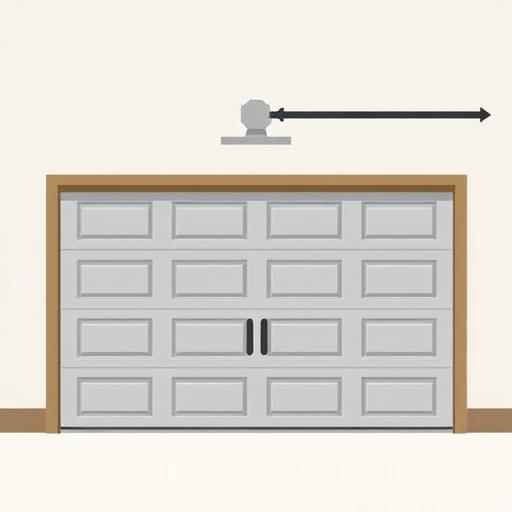
How do I know if my garage door needs lubrication?
Signs include excessive noise, stiffness, or jerky movements. If your door doesn’t operate smoothly, it’s time to lubricate.
Is it safe to lubricate garage door springs myself?
Yes, but take precautions. Ensure the door is fully closed and the opener is unplugged. If you’re unsure, consult a professional.
Should I lubricate my garage door tracks?
Yes, but sparingly. Clean the tracks first and use a silicone-based lubricant to avoid debris buildup.



